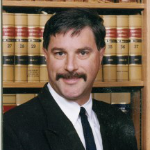Real Estate Agent Fiduciary Duties Ruling
In November 2016, California’s Supreme Court affirmed the Appellate Court’s decision in Horiike v. Coldwell Banker (2014) 225 Cal. App. 4th 427. Its significance is that where a real estate brokerage is representing the buyer and the seller in a transaction, albeit with separate real estate agents for the buyer and the seller, the selling agent and the listing agent owe fiduciary duties to the other’s client.
Facts Regarding the Underlying Transaction:
Coldwell Banker, a real estate brokerage firm, represented the buyer and the seller in a real estate transaction through two separate real estate agents operating out of two different real estate offices. Before close of escrow, the listing agent for Coldwell Banker, Chris Cortazzo, represented that the listed Malibu, California parcel was approximately 15,000 square feet of living area in a flier despite the fact that a listing service provided him with public record information stating that the parcel’s living area was 9,434 square feet.
In 2007 the plaintiff, Hiroshi Horiike, was working with the Coldwell Banker salesperson, Chizuko Namba, as the selling agent to purchase residential property. He received the flier from Chris Cortazzo stating that the Malibu parcel has 15,000 square feet of living area. Before close of escrow, Chris Cortazzo sent to Chizuko Namba a copy of the parcel’s building permit.
Hiroshi Horiike and the seller signed a confirmation of the real estate agency relationship before close, as mandated by California Civil Code section 2079.17, stating that Coldwell Banker, as the listing and selling brokerage, was the agent for both the seller and the buyer in the transaction. This was signed and dated by Chris Cortazzo and Chizuko Namba before close of escrow.
Chris Cortazzo also signed, dated and delivered to Chizuko Namba a form mandated under Civil Code section 2079.16 disclosing three possible real estate relationships in the Malibu, California real estate property transaction. This form received by Hiroshi Horiike stated that the seller’s agent (listing agent) has obligations to both the buyer and the seller in a given transaction to use good faith, and disclose all facts known to the agent that materially affect desirability and value of the contracted parcel that are not known to or within the diligent attention and observation of the buyer and the seller. Another provision of this form stated: “A real estate agent, either acting directly or through one or more associate licensees, can legally be the agent of both the Seller and the Buyer in a transaction, but only with the knowledge and consent of both the Seller and the Buyer.” An agent in a dual agency situation has a fiduciary duty to both the seller and the buyer, as well as duties to the buyer and seller to disclose material facts that affect value and desirability of a given parcel.
Before close of escrow, Chris Cortazzo did not note in writing to Hiroshi Horiike that there may be a discrepancy in the square footage of the residence’s living space, like he had done with a previous buyer who failed to close escrow (15,000 versus 9,434 square feet). Nor did Cortazzo advise Hiroshi Horiike to retain a qualified expert to verify the square footage of the home, as he had with the prior buyer who did not close escrow.
Prior to close, Hiroshi Horiike requested that Chris Cortazzo verify the 15,000 square feet of living space, which Chris Cortazzo did. Post close, Hiroshi Horiike discovered that the home’s living areas did not total 15,000 square feet. Horiike sued Coldwell Banker and Chris Cortazzo, but not the buyer’s agent Chizuko Namba, under various theories of recovery: intentional misrepresentation, negligent misrepresentation, breach of fiduciary duty, unfair business practices, concealment and false advertising. The trial court granted a nonsuit as to the breach of fiduciary duty cause of action solely against Chris Cortazzo. The remaining causes of action went to the jury resulting in a defense verdict for Coldwell Banker and Chris Cortazzo. At trial, Hiroshi Horiike’s expert testified that the living areas of the home totaled 11,964 square feet. The expert hired by Chris Cortazzo and Coldwell Banker testified that the home’s living areas totaled 14,186 square feet.
Hiroshi Horiike filed a motion for a new trial on the grounds that the verdict was internally inconsistent, which was denied by the trial court. He then appealed.
Supreme Court and Appellate Court Decisions:
Both the California Court of Appeals for the Second District and the California Supreme Court reversed the trial court’s decision, holding that the jury’s verdict failed to decide the cause of action for breach of a fiduciary duty against Chris Cortazzo with respect to his failure to disclose a known discrepancy in living space before close of escrow to Hiroshi Horiike. The Supreme Court also held the jury’s findings on the threshold issue of whether Chris Cortazzo made a false representation about the square footage of the living areas.
Effect of Horiike v. Coldwell Banker
The holding of this case is simple. When there are two separate real estate agents who are with the same real estate brokerage, representing the buyer and the seller of the same property, each agent (and the real estate brokerage) are fiduciaries for their separate client. The agents and real estate brokerage are also fiduciaries for the other agent’s client where the highest duty of good faith, fair dealing, and disclosure are mandated to both parties.
The decision on the issue of breach of fiduciary duty is factually decided. Had Chris Cortazzo disclosed in writing before close of escrow to Hiroshi Horiike, that he knew that there were square footage discrepancies in the home’s living space, with documentation showing such discrepancies and suggesting that Hiroshi Horiike consult with an appropriate expert before close of escrow to verify the home’s square footage, most likely no lawsuit would have been filed.
Lessons to Be Learned from Horiike v. Coldwell Banker
There are many lessons to be learned from Horiike v. Coldwell Banker, including;
- Buyers deem the square feet of a parcel being purchased as being material to the transaction.
- Where a real estate brokerage represents both the buyer and seller through one or more of its affiliated real estate agents, then the listing agent, selling agent, and the brokerage all owe fiduciary duties to both the buyer and the seller as a matter of law.
- In any real estate transaction, the selling agent and listing agent — from a risk management perspective — should disclose in writing all matters that they know about a given parcel that materially affect desirability and price to be paid to the other party before close of escrow, and recommend that third-party experts be consulted by the parties to follow up on such issues before title to the real property is transferred.
From a risk management perspective, whenever a real estate brokerage is handling a transaction where its affiliated agent(s) are representing both the buyer and the seller, the agents and the broker of record need to be extremely vigilant in the written disclosures. Before close of escrow, parties should be provided with written suggestions that a party should consider further consultation with an appropriate expert on an issue prior to the transaction closing escrow. As a practical matter, a licensee should make it a practice to disclose all issues in writing before close of escrow to the other party.
If you’re ever in doubt or have questions around documenting disclosures, call the CRES ClaimPrevent® “Stress Less” legal advice hotline at 877-273-7467 for expert guidance. We’re here to help you prevent claims, not just support you after one’s been filed.
Do you have questions about disclosure or documentation best practices? Ask us in the comments below.
About the Author

B. Edward McCutchan, Jr.
Sunderland | McCutchan, LLP
Mr. McCutchan’s practice is primarily civil litigation with an emphasis in defending professionals and businesses in real estate, mortgage brokering, construction, banking and agricultural industries and all phases of dispute resolution through trial and appeal. His area of practice is also agricultural law (viticulture and wineries), trusts and estates, probate, real estate transactions, business law and elder abuse. B. Edward McCutchan, Jr. was admitted to the Bar in 1985 and is admitted and qualified to practice in all California courts and the U.S. District Court, Eastern and Northern Districts of California as well as the United States Tax Court.
